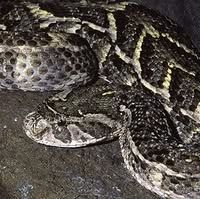Activity
Mon
Wed
Fri
Sun
Apr
May
Jun
Jul
Aug
Sep
Oct
Nov
Dec
Jan
Feb
What is this?
Less
More
Memberships
Nature & Wildlife Art Hub
11 members • Free
1 contribution to Nature & Wildlife Art Hub
Photography Basics: The Beginner's Guide
A Beginner's Guide to Mastering Photography Embarking on a journey into photography is both exciting and a bit daunting. But fear not, mastering the basics of photography is achievable with some guidance and practice. Here’s a simple, easy-to-follow roadmap for any beginner eager to capture life's moments through the lens: 1. Start with the Basics - Understanding your camera: Get to know the different parts of your camera. What does each button do? How does changing settings affect your photos? - Learn about exposure: Exposure is the amount of light that reaches your camera sensor. It is crucial for taking good photos. 2. Key Concepts Explained - Aperture: This is like the eye of your camera. It controls how much light gets in. A wide aperture (a lower f-number) lets in more light and blurs the background, while a narrow aperture (a higher f-number) lets in less light and keeps more of the scene in focus. - Shutter Speed: This determines how long the camera’s shutter is open to expose light to the sensor. Fast speeds freeze action, while slow speeds create a blur effect from moving objects. - ISO: This controls the camera’s sensitivity to light. A lower ISO is used in bright settings to reduce graininess, and a higher ISO is helpful in darker settings. 3. Composition and Creativity - Rule of Thirds: Imagine dividing your image with two horizontal and two vertical lines. Place important elements along these lines or at their intersections. - Leading Lines: Use natural lines in your shots, like roads or rivers, to lead the viewer’s eye through the scene. - Framing: Use windows, archways, or branches to frame your main subject, adding depth to your photo. 4. Practice Makes Perfect - Experiment with different settings to see how they change your photos. - Take lots of pictures to see what works and what doesn’t, and learn from each shot. 5. Review and Improve - Look at your photos and ask yourself what you like and what you could improve. - Try to understand why some photos work and others do not. This reflection helps improve your skills.

1-1 of 1
@stuart-roth-7016
Enthusiastic amateur, looking to learn more about the many aspects of photography.
Active 442d ago
Joined Dec 9, 2024
Powered by

